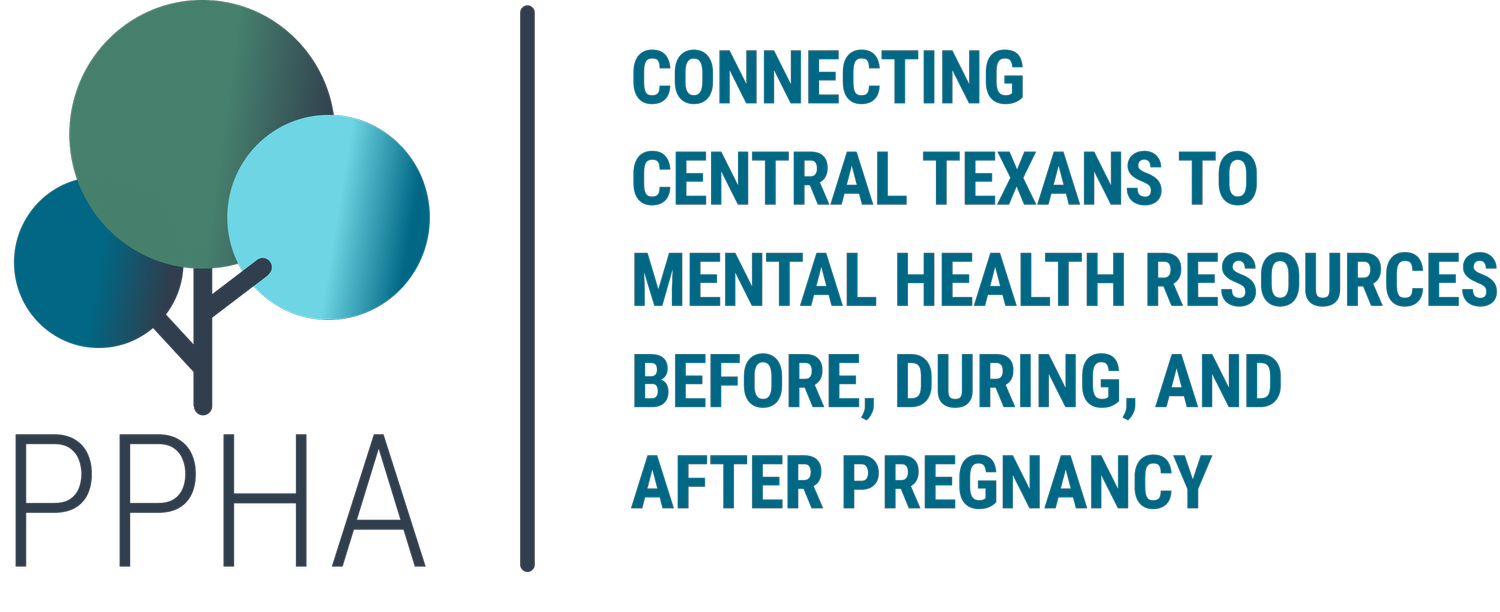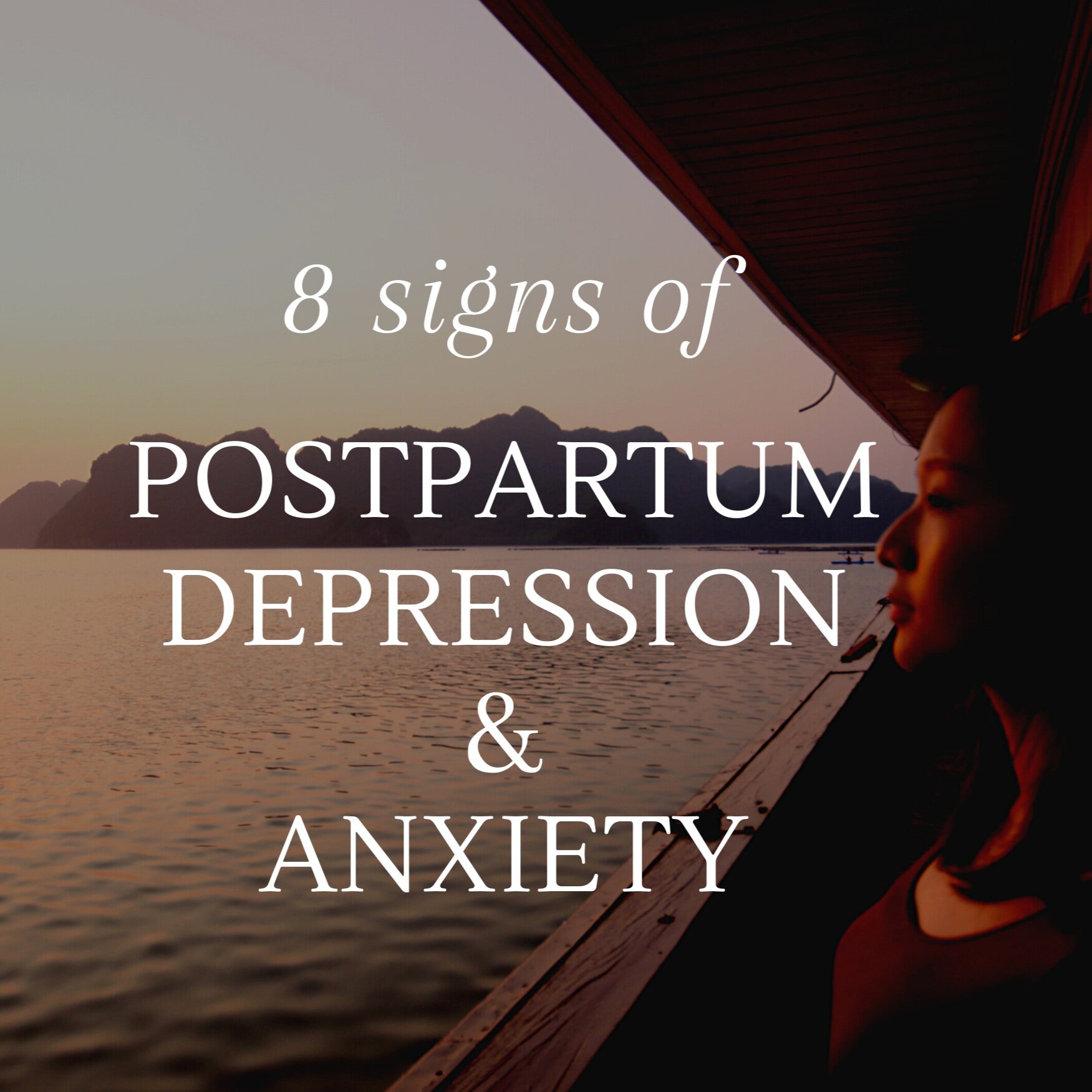There is no doubt that during postpartum depression, the mother is experiencing things that no man can truly understand or grasp. It's a dark, scary, anxious place, which is completely contradictory to how everyone thinks new motherhood will be. There are many places where you can read about PPD from the mother's (or from a woman's) perspective. However, there doesn't seem to be as much from the father's (or man's) perspective. I therefore wanted to share my story.
My wife, then of 5 years, was so excited about having a child. 2 kids, actually, was the plan. She had minor bouts of anxiety and depression in the past but overall, was a happy person and was ecstatic about motherhood. When our daughter was born, the first couple of days were one of amazement, excitement, love, awe, etc. But that quickly waned as PPD took over our lives. Within the first week after our daughter was born, things were very, very wrong. Constant crying, no/few ways to cheer her up, complete disinterest in anything, fatigue, lots of sleeping, and worst of all, the feeling she had made a mistake. As a father, my head immediately went to the worst place (the things you see on TV and read/hear about in the news) - that my wife wanted to hurt my baby girl. Looking back now, I realize there is a difference between what my wife was experiencing and Postpartum Psychosis. The later is a medical emergency and a very important one to diagnose immediately. No one can do this except a licensed professional. So now to the tips that I would give husbands/caregivers:
Tip 1: Take note of the past tendencies. I knew she had previous bouts of depression and anxiety in her life, but I never thought that could impact her as a mother. It’s not always the case that a history of depression or anxiety means your wife will have PPD, but there is a correlation, so as I said, take note.
Tip 2: Get help immediately. Even if it ends up being a false alarm or preventative, talk to a professional. This can be your wife’s OB/GYN, your general practitioner, your baby’s pediatrician; just reach out. This part was not easy for us, as at the time when my daughter was born, the availability of resources out there to help families suffering from PPD were limited. I remember looking through the yellow pages (yes, I'm dating myself) for psychologists/psychiatrists, making tons of calls, only to find out that few of these knew much about PPD, let alone specialized in it. Thankfully, things are better today, and I can only hope that trend will continue. You might think that just talking to your family or friends will help, but they don't really understand what's going on and at times may make you feel things are “not that bad” and "it will pass." If I had a dollar for every time I heard that (and said it), we'd be retired on a beach somewhere.
Tip 3: Medication immediately. People have mixed feelings on this, and I understand the need to make decisions based on each person’s particular situation, and a medical professional can help you determine what’s best. In my wife’s case, this was a necessity. Medications need time to work and you need those meds to start working on the physiological and psychological things that are happening to your spouse while she works through other things in therapy. It’s much easier for her to stop taking medications if her and her doctor determine she doesn’t need them then it is to “catch up” by not taking meds and then desperately needing them later. This is not a healing process that happens one step at a time. Things must work in parallel. Also, don't expect the first "set" of meds for her to be the right one. Everyone is different and it may take a few different tries to figure out which meds work best. Be patient, but also diligent. Talk to the doctor regularly. Attend the appointments. Don't think because your wife has a good day she can get off the regime. Medication should never be stopped without the assistance/directive of a medical professional, so be part of this conversation, your wife needs you there.
As for you personally, father/husband/caregiver, you might want to consider medications as well. I personally never got on meds during this, but I think many dads should and in hindsight, I really should have.
Tip 5: Therapy ASAP. Once my wife had started on her medication path, it was time to find her a therapist. From my experience, this was a crap shoot. It's like working with any professional - you don't really know who is going to be right until you try a few. Don't be afraid for your wife to change therapists, but be thoughtful about it. Don't just change b/c one session didn't go well, but don't ignore repeated signs that the therapist may not be right for your wife. Do not give up, however! Therapy was a miracle worker for my wife, and although I never actually sat in on any of the therapy sessions with my wife (I did drive her to almost all of them) I saw the effects almost immediately. I don't know if it’s a good thing or a bad thing that I was never party to the sessions, it was never really an option for me, but in your case it might be helpful. I would follow the guidance of the therapist.
Tip 6: YOU WILL CRY. A lot. Yes, you, husband/spouse/caregiver. You will have days with no hope that things are going to change. You will breakdown. You will feel insecurities that you may have never felt before. You will be angry, scared, sad, and confused. You will want to fix it, like you do anything else. That won't work. You need experts to help. And know that it will take time. I'm an impatient person and this was really hard for me. The first 6 months for us were really tough. There were more bad days than neutral days. There are a few ok/good days sprinkled in there, and the occasional great day. Enjoy the better days, but don't think that's the end of it. This is a monster that likes to rear its ugly head often.
Tip 7: Be honest. If possible, swallow your pride, and share what’s happening with your employer. Take medical leave if you can, ask for flexibility to work from home and take time off for doctor's visits, etc. Most employers are willing to work with you, and in the case your employer just doesn’t get it, help educate them. Most importantly, however, be ready to drop literally everything because a bad day is becoming worse. This is not a time in your life where you can predict what's going to happen next. It just doesn’t work that way.
Tip 8: Accept help from others. Again, swallow your pride. My mother in law lived with us for several months and I can't imagine going through this without her there to help. She not only helped my wife (her daughter) in the healing process, but she was a huge help to me. She was someone I could talk to, compare feelings with, "escape" with, and it was nice to have another set of adult eyes on the situation. Our relationship strengthened exponentially through this, which I am eternally grateful for.
Tip 9: Be Patient. As I said before, this will take time. You must be patient, which I also said before, was extremely difficult for me. It will do no one, especially your wife, any good to try to rush things along. For us, months 6-12 were a little better for my wife, but we were still not out of the woods. There were more good days than bad, but again, this illness will rear back up several times. (Imagine a roller coaster if you’d like) In fact, these instances continued well into year 3. Now, don't freak out, because I am not saying the first 3 years are all bad. After the first year, things got progressively better for my wife and life was slowly getting back to “normal”. But then, it seemed like once a month to every other month, there would be a recurrence where we felt like we were smack dab back in the first 6 months after birth. It takes what it takes.
Tip 10: Take care of yourself too. Although your first responsibility is your wife and child, you must take time for yourself as well. Take care of yourself or you won't be able to take care of her. Exercise, mediate, see a doctor, play golf. Do something that helps ease some of the pressure. In writing this and reflecting, keeping a journal or diary would probably have been therapeutic for me. It would have allowed me to get my feelings out and also have been able to reflect on the progress that was happening. I could have looked at these progress notes when things got “bad” from time to time.
There is a ton more I could write about my experience and story, but I'll close with these final thoughts for dads/spouses/caregivers out there who are going through this. Your wife is really sick, give her the time and support to get better. This is a long healing process, put your desire aside to fix everything. Be patient and ready for change (our plan of having 2 kids turned to only 1 because of this). It WILL get better and you WILL come out on the other side stronger, and likely more connected with your wife and baby.
Ryan Stockwell is the husband of Kelly Stockwell, secretary of PPHA.




